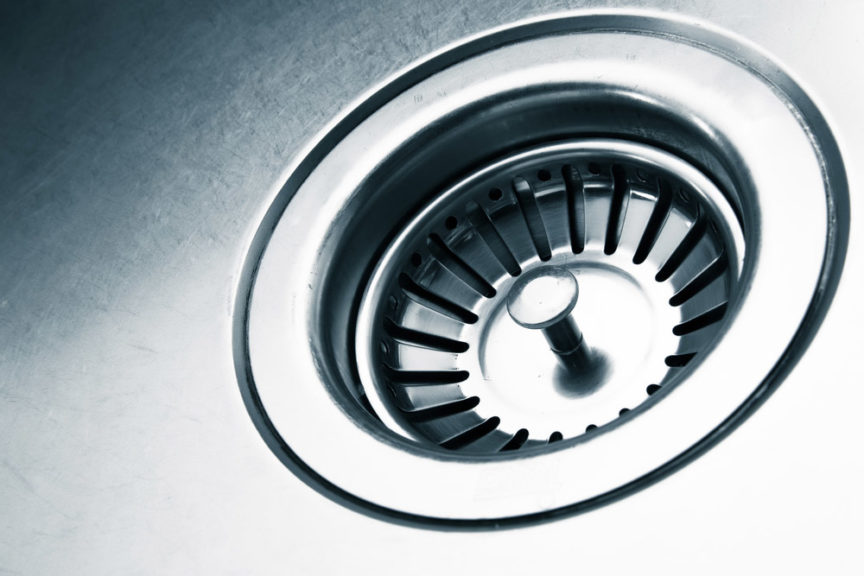Smelly drains are, unfortunately, a common occurrence in Australia, particularly during hot summers. If your property frequently suffers from smelly drains, this usually indicates that something is wrong with your plumbing.
The internet will offer you some quick fixes for smelly drains, often involving vinegar and baking soda, but the most these remedies will do is offer temporary relief. If your drains are repeatedly releasing foul odours and flies are starting to gather, it’s time to repair the root cause of the issue.
Table of Contents
What are the most common causes of smelly drains and drain flies?
A smelly drain is caused by a build-up of organic matter within the plumbing system. These wastes and deposits create an environment in which smelly bacteria can thrive and consequently produce smelly gases. Drain flies hover around smelly drains because they are attracted to the smelly gases.
The bigger question is what is causing the build-up of organic matter within your plumbing system. This smelly sludge is being produced for a reason, so if you don’t fix the root cause of the smelly drains and drain flies in your property, smelly drains will continue to be a problem.
Some of the most common causes of smelly drains and drain flies are:
- Trapped gunk or dirt, which can build up inside your pipes
- Mould growth inside pipes
- A dry p-trap
- Clogged pipes
- Issues in the water
- Plumbing problems, such as water leaks and rotting drain pipes
- Tree roots in your plumbing system
- Issues with the sewer line
How to fix the most common causes of smelly drains
Identifying the cause of the smell coming from your drains should be your first priority. Once you’ve identified the cause of your smelly drains, you can take appropriate steps to rectify it and, hopefully, say goodbye to those drain flies and bad smells. Let’s explore how to identify the most common causes of smelly drains and how to fix each problem.
Trapped Gunk Or Dirt
Gunk or dirt that’s trapped in the drain, or the pipes below it, will emit a bad odour over time. Trapped gunk and dirt is most commonly a problem in kitchen sinks and showers, where food particles and hair can get stuck and cause a blockage. If your sink is draining slowly as well as emitting a foul odour, this could be the source of your problems. Plumbers can remove drain blockages for you. As a temporary fix you could try using a plunger on the sink, pouring boiling water down the sink, and using chemical remedies designed to remove clogs from drains.
Mould Growth Inside Pipes
Mould growth inside your plumbing is usually fairly easy to identify because it will emit more of a musty odour when compared to other kinds of drain smells. Mould growth commonly occurs in damp, moist places, which is why pipes and plumbing so often become host to mould. Baking soda is an excellent home remedy for getting rid of mould growth, and a solution of vinegar and baking soda used regularly can help to keep your drains free of mould in the future.
A Dry P-tap
If a drain or sink that is not in use is starting to smell, the most likely cause of the problem could be your p-tap. A p-tap is a U or S-shaped trap that uses water to prevent smelly sewer gases from entering your home. If the p-tap has become dry, because your sink or drain has not been used for a long time, it could be emitting smelly gases into your house, which will attract drain flies. You can fix this by simply pouring water down the drain to refill the trap.
Clogged Pipes
Clogged pipes are a fairly common cause of smelly drains and drain flies, especially in areas where there is a lot of hair being washed down the drain. Plumbing problems like these will often be accompanied by other problems that have led to blockages further down your plumbing system, so if you suspect your smelly drain could be caused by a clog, it could be best to call a plumber to identify the root cause of the blockage and clear it.
Water Leaks And Rotting Drain Pipes
Bad smells coming from your drains might also indicate a bigger problem elsewhere in your plumbing system. For example, water leaks and rotting pipes can both cause foul smells to emerge from your drains. Problems in your plumbing might also be accompanied by other issues, such as smelly bath water or discoloured tap water. If you suspect that your smelly drains are caused by problems in your plumbing, you will need to call a plumber like Oceanside Services to identify and fix the root cause of the problem.
Tree Roots In Your Plumbing System
More often than you might think, tree roots can also cause serious problems in your plumbing. If you live near a big tree, or multiple big trees, the roots of these trees could have made their way under your home and into your sewage pipes. This can cause bad odours because the tree roots will emit smelly substances as they grow and decay.
Before you repair this problem, it’s important to establish whether tree roots really are the cause of your smelly drains. A plumber, like Oceanside Services in Brisbane, Gold Coast, and Tweed Heads, can use a camera to identify tree roots within your pipes and, if necessary, cut and clear the roots from your drains.
Issues With The Sewer Line
Sometimes, problems in your own drains could be caused by issues further down in the sewer line. Indications that your smelly drain is stemming from the sewer line include foul smells from multiple outlets within your home or smelly drains that are connected to more than one drain in your home. If you suspect that the bad smells coming from your drains are caused by an issue in the sewer line, you should call a plumber as soon as possible to investigate the problem.
Get In Touch
If your drains are starting to smell, get in touch with us at Oceanside Services. We can identify, locate, and repair any plumbing issues within your pipes and property.
We’re available for plumbing and blocked drain services on the Gold Coast, Brisbane and Tweed 24/7 with a 1 hour emergency response, 365 days/year.



 5 Star Service
5 Star Service 







